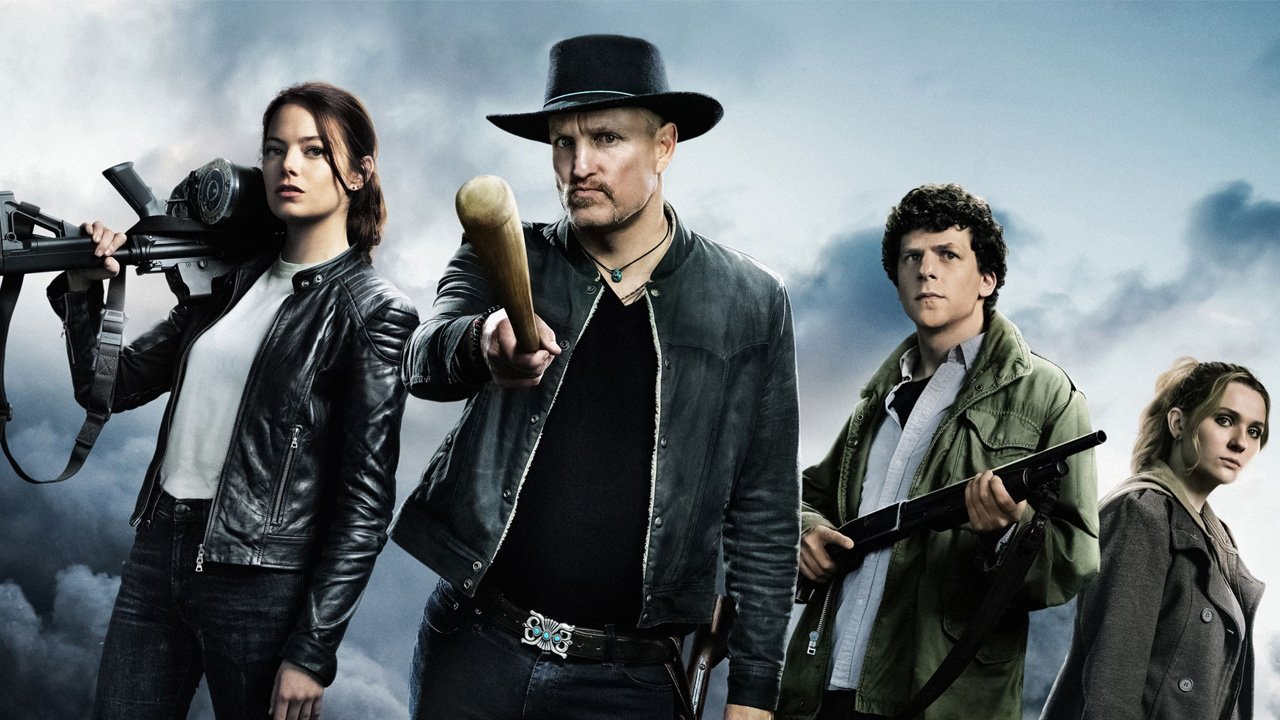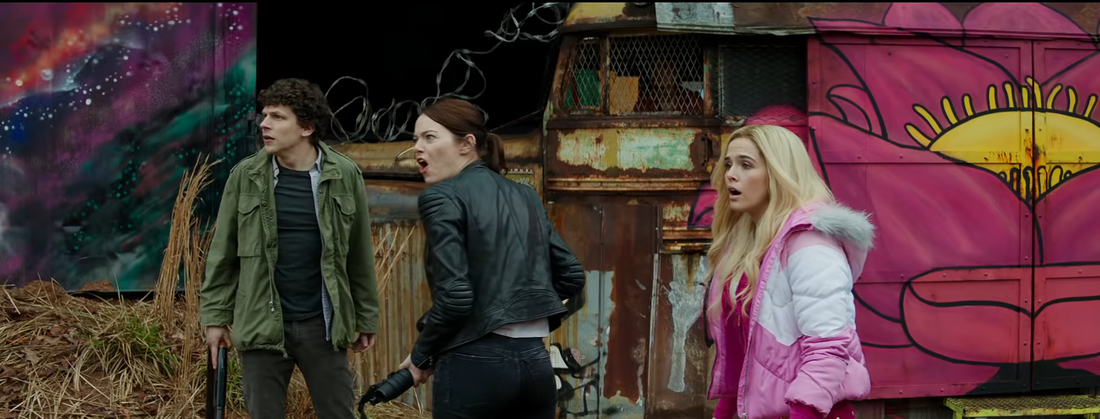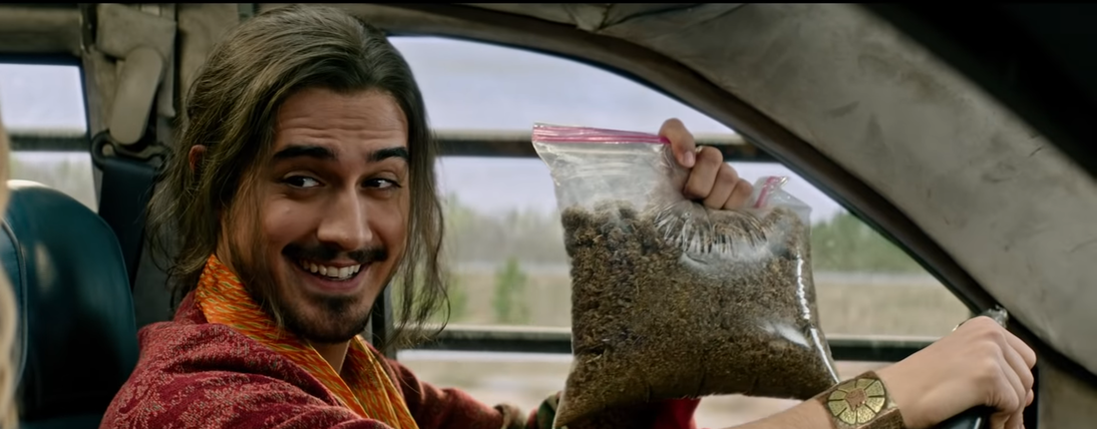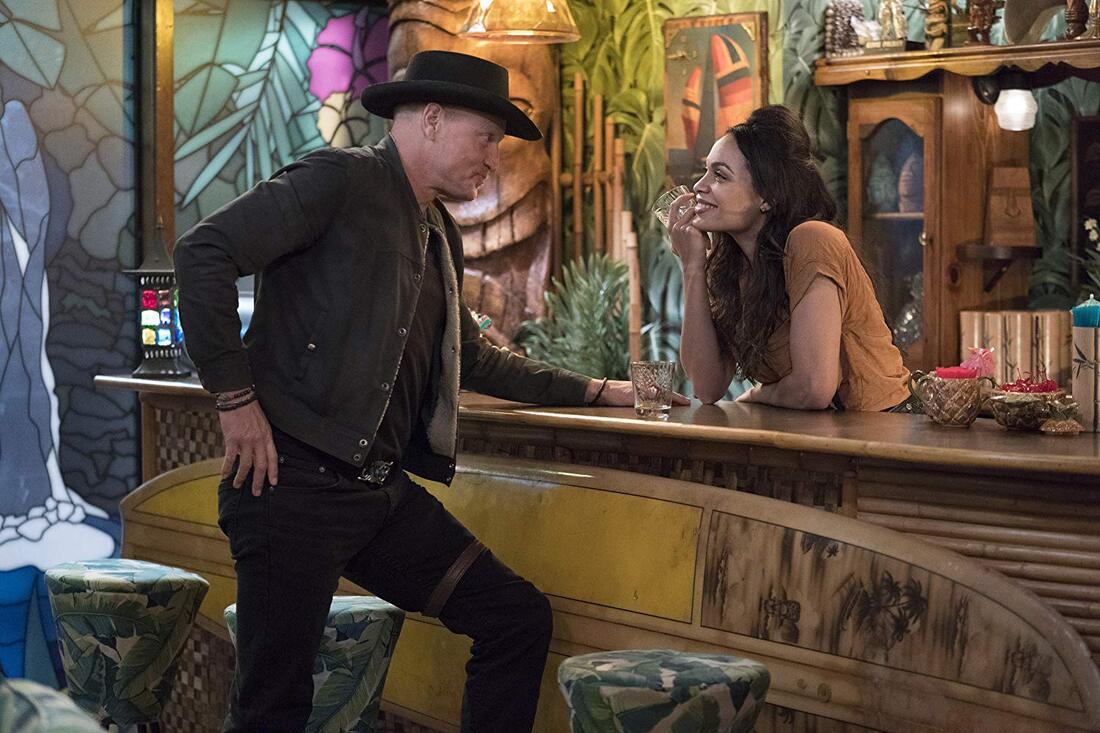Zombieland: Double Tap. Directed by Ruben Fleischer, Columbia Pictures, Relativity Media 2 Oct. 2019.
|
By Joseph Naguski Ten years after the original film, in Zombieland: Double Tap (Fleischer, 2019) audiences are returned to the zombie-plagued dystopian universe that Columbus (Jesse Eisenberg), Tallahassee (Woody Harrelson), Wichita (Emma Stone), and Little Rock (Abigail Breslin) have become accustomed to. Now living in the White House, the gang seems to have conquered the Zombie world enough that they begin to have mundane human issues unrelated to the zombie apocalypse that now encompasses the world. With new allies, threats, and ambitions amongst the characters, this sequel attempts to capture the same spirit of the original, to a somewhat successful degree. Zombieland: Double Tap introduces quite a few new characters for the main cast to interact with, a ditzy blonde named Madison (Zoey Deutch), a stoner pacifist named Berkeley (Avan Jogia), and a middle-aged, Elvis-loving, hard-boiled hotel owner named Nevada (Rosario Dawson). The implementation of these characters along with others helps try (somewhat successfully) to give the world an aspect of freshness. Along with this, a new zombie threat has developed, though the relevance of this threat is not really touched upon much after its introduction into the plot. Zombieland: Double Tap brings not only a plethora of new characters, but also gives audiences a number of different callbacks making fun of the first film. This can be seen in things such as Columbus’s rules along with the rehashing of Columbus and Tallahassee’s personalities in the short-lived characters Albuquerque and Flagstaff. The comedy in the film is reminiscent of that in the first film, giving audiences a wide variety of jokes along with the outlandish jam-packed action full of zombie guts at every turn. Needing to find new ways to kill the zombies, the methods used by the characters to destroy them are unique and comical, such as smashing them with a giant monster truck. As mentioned earlier, the overall plot of the film is much less focused on the zombie-survival aspect and brings more attention to the relationship between the different characters the audience has become attached with. This is somewhat entertaining but leaves out some of the sense of adventure that came from the first film. The way the story progresses and some events that occur in the film are bewildering and seem to be redundant in the bigger picture. This itself gives the film a sense of enjoyment in having no idea what could come next. In this sequel characters do not have the same amount of plot armor that they did in the first film, whether they are old or new. There is also a multitude of new environments the characters find themselves in, with the audience never quite sure exactly where they’ll end up. Overall Zombieland: Double Tap does a pretty good job of capturing the elements of the first film, but the nonsensicality of the objectives of the plot itself make it lose some of the entertainment that the original had. The original was a much more straight-forward storyline and solid cast of characters which didn’t overwhelm the audience like the sequel does. The comical components of the sequel are similar to that of the first film, so if you found that film funny this one will be too. Did this film really need a sequel? Probably not, but it is watchable if you just want to turn your mind off and laugh at the ridiculousness of it. Work Cited
Zombieland: Double Tap. Directed by Ruben Fleischer, Columbia Pictures, Relativity Media 2 Oct. 2019. Comments are closed.
|
Archives
April 2024
|





 RSS Feed
RSS Feed
